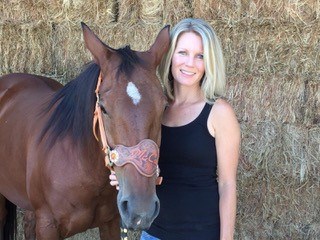Are Stabled Horses at Increased Risk for Developing Colic?
- Topics: Article, Colic, Pasture and Forages, Stalls
Every horse owner wants to avoid the dreaded "C" word, and although it sometimes is unavoidable, there are some steps owners can take to prevent colic. Housing horses in pastures rather than stalls, for example, could reduce the likelihood of a horse developing colic. According to the results of a recent study performed by a group of British researchers, there is a decrease in stall-kept horses’ intestinal motility (or movement of digesta) as compared to pasture-kept horses, which could help explain the higher risk of colic seen with stabled animals.
The research team, led by Sarah Freeman, BVetMed, PhD, CertVA, Cert VR, CertES, Dipl. ECVS, MRCVS, associate professor of Veterinary Surgery at the University of Nottingham School of Veterinary Medicine and Science, in Leicestershire, used ultrasonography to assess the frequency of large intestinal contractions (and thus, the amount of intestinal motility) in two groups of eight horses (no recent history of gastrointestinal disease) used for equitation training at the Defence Animal Centre in Melton Mowbray, UK.
The first group was stabled throughout the study period, which was comprised of two monitoring phases. They were fed hay and concentrate twice daily and had constant access to fresh water. Horses in this group were exercised lightly for 60-90 minutes daily. These horses remained in the same routine throughout both monitoring phases.
The second group was kept on pasture 24 hours a day with constant access to fresh water for the first part of the monitoring phase. They received no formal exercise or supplemental concentrates while at pasture. For the second monitoring phase, horses in this group were transferred to the stabled regime, identical to the first group. They were given a two-week acclimatization period between being turned out and stall kept
Create a free account with TheHorse.com to view this content.
TheHorse.com is home to thousands of free articles about horse health care. In order to access some of our exclusive free content, you must be signed into TheHorse.com.
Start your free account today!
Already have an account?
and continue reading.

Written by:
Casie Bazay, NBCAAM
Related Articles
Stay on top of the most recent Horse Health news with












